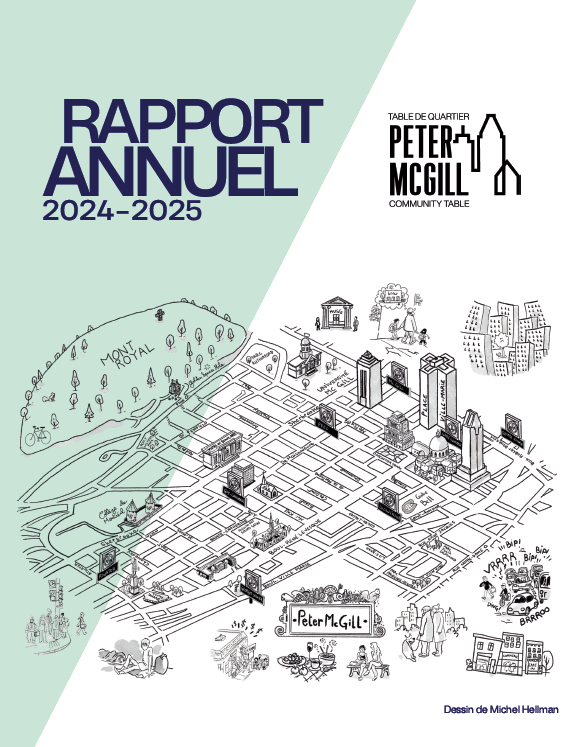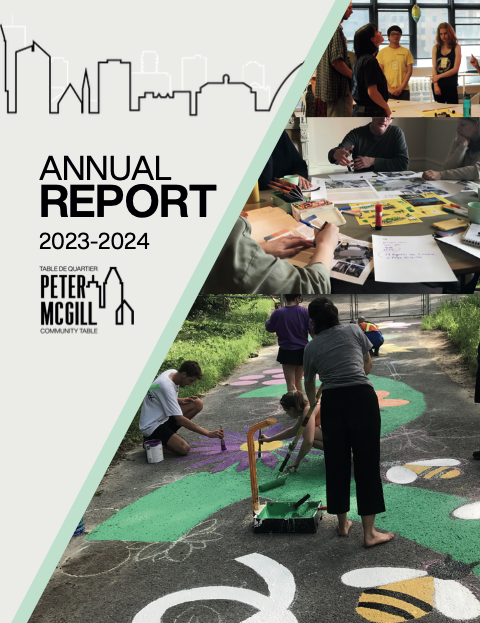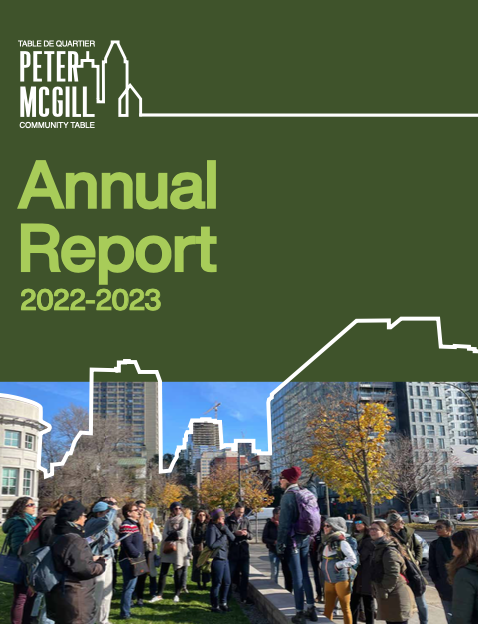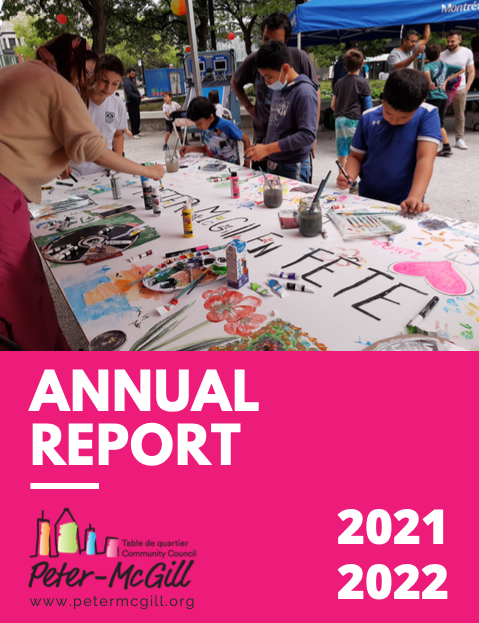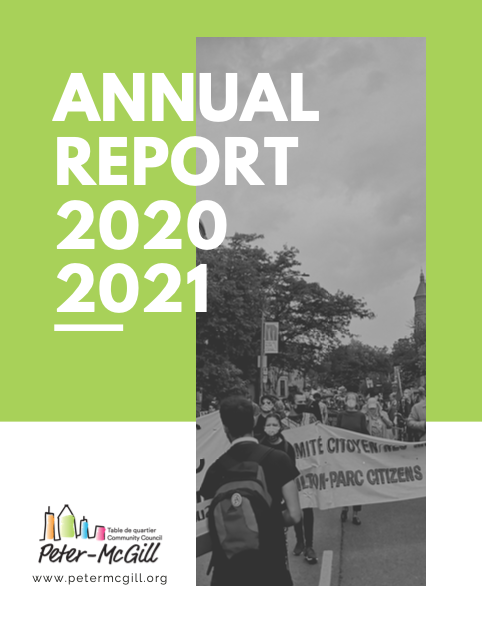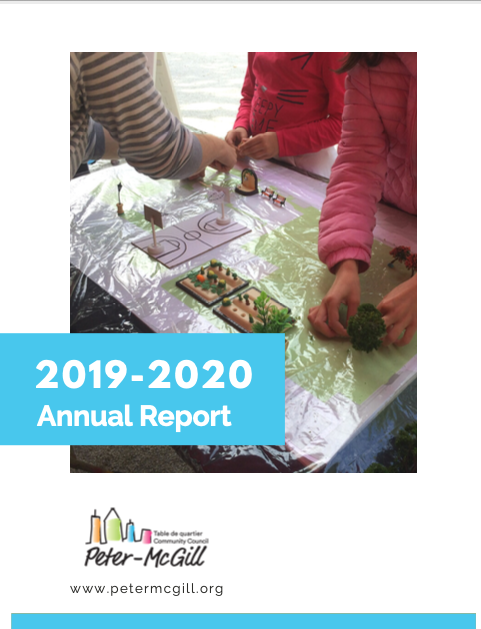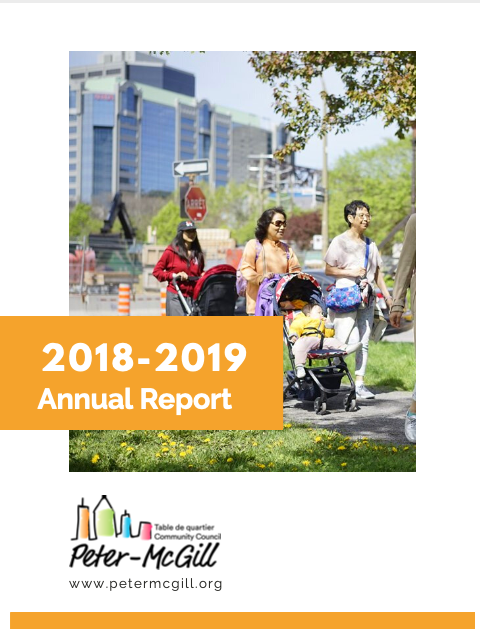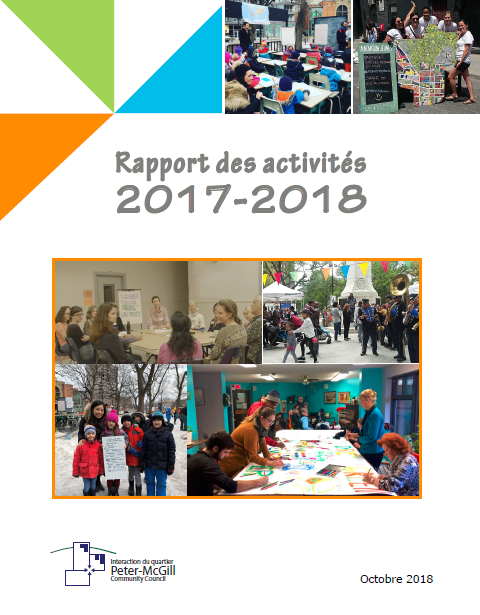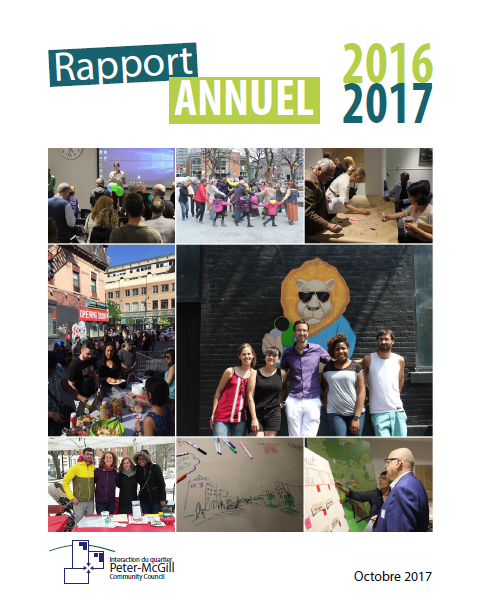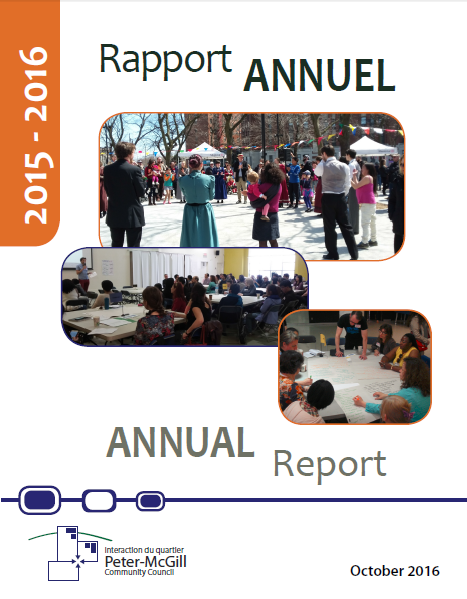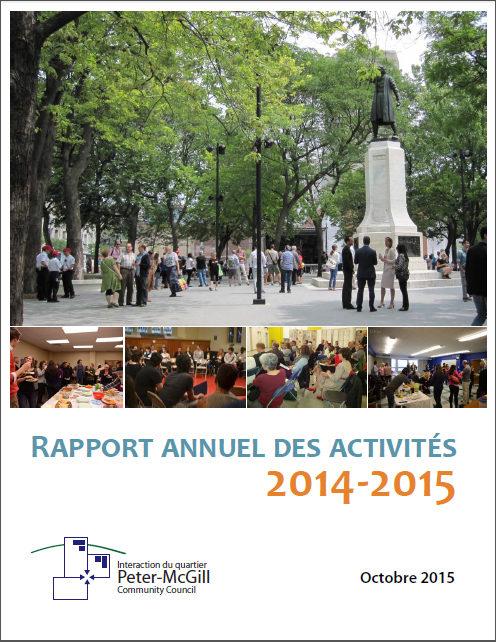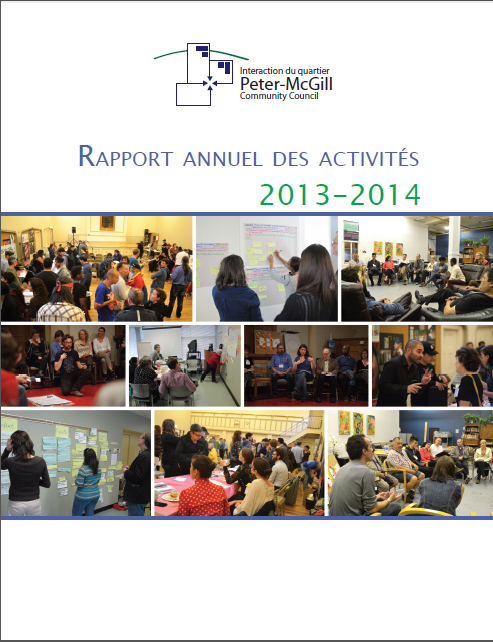Peter McGill Community Table
The Community Table is a non-profit organization whose goal is to bring together the residents and groups of the Peter-McGill neighborhood around initiatives aimed at improving the development of the area and the services offered to the population.
History of the Table
These tables focused on specific themes and realized there were limitations in their ability to act on broader issues related to quality of life in downtown. The idea of developing a community table had been growing in several minds for some time. The Youth Forum was considering the idea in order to carry out some large-scale projects that went beyond its mandate and for which it did not have the resources to implement.
The Montreal City Summit, held in May and June 2002, provided an opportunity to bring together community organizations from the Peter-McGill district, across all intervention sectors, allowing them to collectively define priorities and needs within the district. The identified needs and the fact that very few organizations from the district had been invited to speak at the summit led the organizations present to join forces in order to advocate for their views, coordinate their actions, and address the identified needs.
A working committee was then formed to set up a community table. The Peter-McGill Community Table was incorporated in December 2002 and held its founding assembly in June 2003.
Since then, the Table has led various consultation activities and has allowed local stakeholders to speak with one voice on topics related to urban planning, social housing, social inclusion, urban safety, green spaces, cleanliness, the role of families, and traffic calming.
.
What is a Community Table?
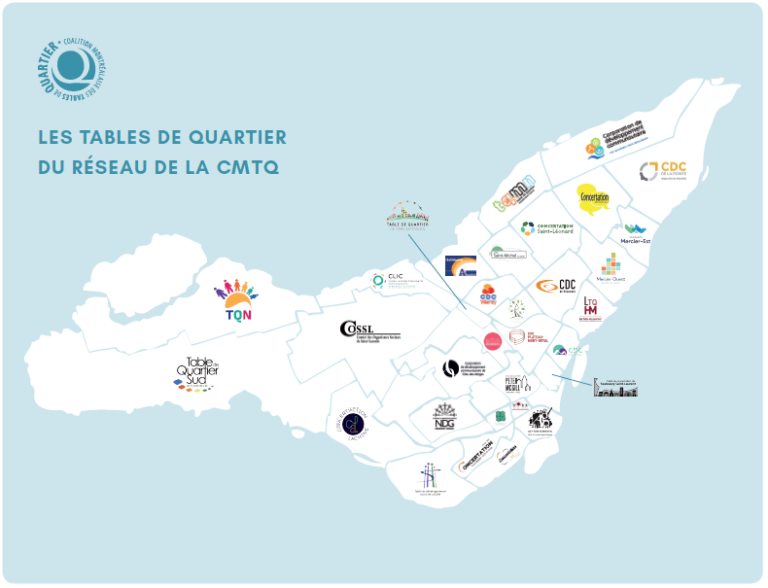
“Community Tables aim to contribute to improving the living conditions and quality of life of local populations. They are local intersectoral and multilateral consultation bodies that work on various issues: housing, urban planning, food security, the environment, transportation and mobility, social cohabitation, etc. This means they bring together as many stakeholders from the neighborhood as possible from diverse backgrounds: community organizations, institutions, the cultural sector, the business community, and especially citizens.
Together, the partners create a portrait of the neighborhood, organize consultation activities, collective reflection, citizen participation, and determine priorities for action.”
According to the definition from the Montreal Coalition of Community Tables
ANNUAL REPORTS
OUR TEAM



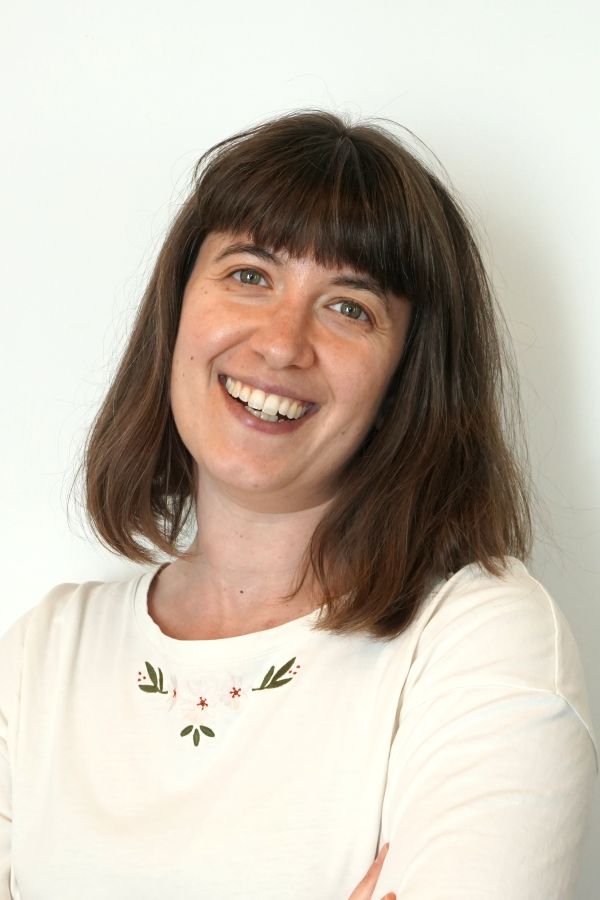

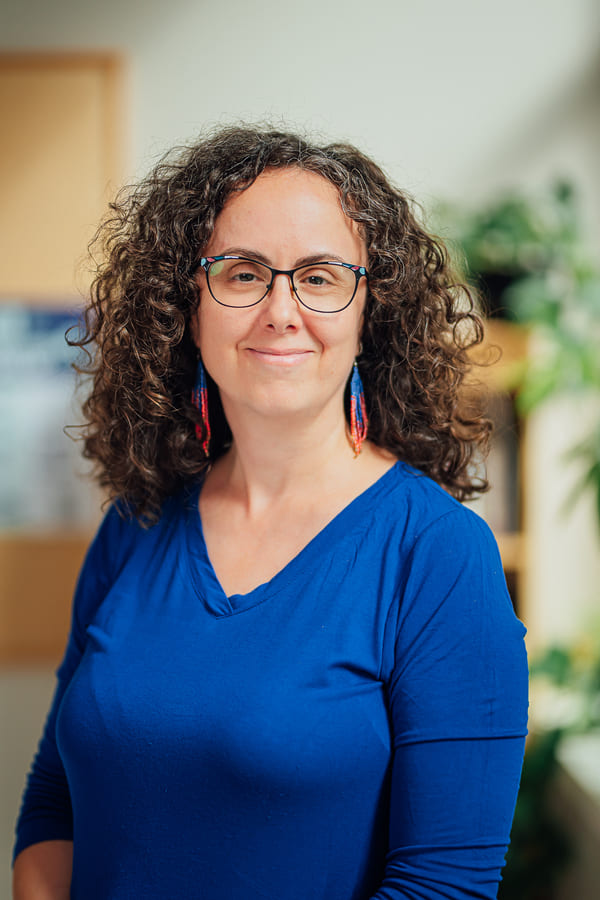

Board of Directors
CHARIC
CREMCV
Chair
BARITEAU
CJE Centre-Ville
Vice-chair
ADIB
Resident
PELLETIER
Treasurer
Resident
LASHLEY
Resident
LEMAIRE
Auberge Saintlo
GLOANEC
Sollicité
GATES
Collège de Montréal
PAQUETTE
Alima
